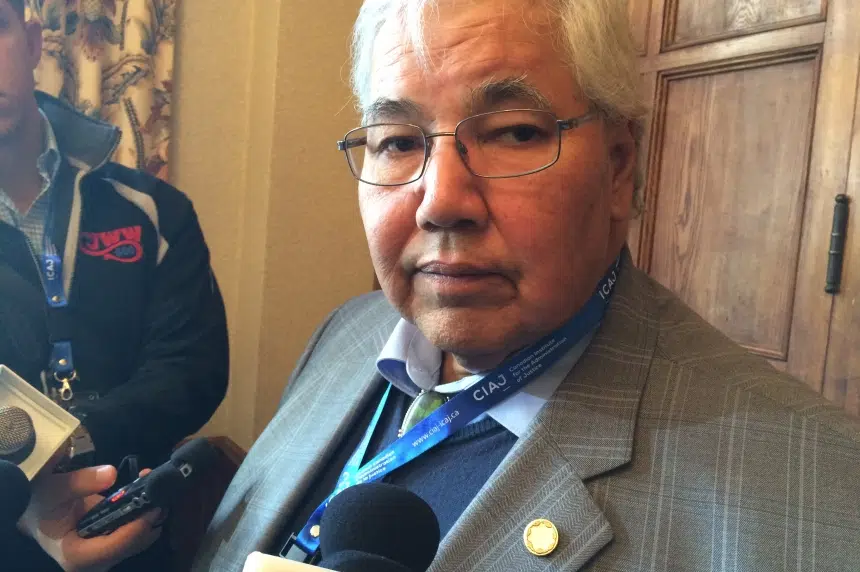A Manitoba judge calls for less incarceration and more community involvement when it comes to aboriginal offenders.
“Aboriginal approaches to justice probably have better solutions for the people of those communities, not necessarily for everyone in society, but at least with the people of those communities,” said Justice Murray Sinclair, a judge in Manitoba’s Court of Queen’s Bench who chaired the Truth and Reconciliation Commission (TRC) earlier this year.
“We’re too easily led to incarcerating people without trying to fix the real problem.”
On Wednesday Sinclair spoke at a law conference in Saskatoon, where he called for changes on how First Nations and aboriginal offenders are brought to justice. While Sinclair recognized pre-sentencing reports such as the Gladue Report – a bail-hearing report used when considering sentencing an offender of aboriginal background – Sinclair said incarceration remains sky-high.
“Pre-sentencing reports are a helpful tool for judges but what needs to be developed … (is how) the communities get engaged with the court system, the victim and the accused, to ensure that the relationships damaged by the action, are properly addressed,” Sinclair said, adding he recommends community sentencing, where the accused comes face-to-face with the victim, the victim’s families and those affected by the crime.
Sinclair said that’s a much tougher punishment than sitting in a jail cell.
“The process of being sentenced by those in your community and having to sit there and listen to those people talk to you, about you, and give you direction is a much more difficult process for the accused and many prefer not to do that,” Sinclair said. “Most people can go through a legal process from the time they were charged to the time they were sentenced without saying a word and for many people that’s easy.”
Despite his calls to action, Sinclair said he doesn’t expect judges across Canada to change the way they do business, but he said restorative justice should be something they consider.
“I think there’s a lot of room in the Canadian legal system to change its dependence on incarceration and its dependence on the punitive approach,” Sinclair said.
Turning his attention to the 94 recommendations made to the Government of Canada through the TRC, Sinclair said the report didn’t come with an expiry date.
“At the time we released the report I said the recommendations are meant to stand the test of time and we recognize the government of the day was very leery of implementing recommendations that we made because they are not in agreement and we accept that,” he said.
“But what we said is that governments come and governments go. This government isn’t going to be around forever so there will be another opportunity for another government to determine what the appropriate thing to do is.”











